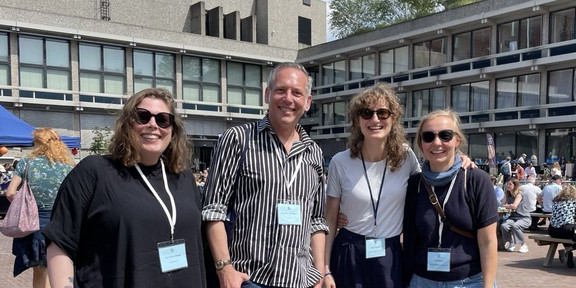EASST-4S

Auf der EASST-4S Konferenz in Amsterdam mit über 3.300 Teilneherm*innen hat sich auch das Fachgebiet Wissenschafts- und Techniksoziologie rege eingebracht. Insgesamt mit zwei Vorträgen und zwei Panelorganisationen war unser Team vertreten:
Ann Kristin Augst (presenter):
I simply had no idea what I was allowed to do. Self-tracking as a popular method by and for patients to explore and understand their own chronic illness in more detail
This presentation sheds light on how patients and people with chronic diseases monitor their own health/illness with the help of fitness trackers or apps. It also explores how doctors deal with this patient-generated data and figures – and the resulting expertise of the patients for themselves.
Julia Kurz (presenter):
Playing with (dis)empowering for participation in digital health transformations
In this reflection about being an embedded STS researcher I will argue that being an embedded STS researcher demands and likewise enables active positioning work that is driven by individual decisions, project design as well as by the context of the consortia and its members.
Cornelius Schubert (convenor):
Innovation discontinuities
Innovation is often conceived as a universal solution for transformative change. We seek to question this problem-solution package from a Critical Studies of Innovation perspective. We call for studies of discontinuities in innovation practices or policies and how they vary in societal fields.
Ronja Trischler (convenor):
Qualitative digital methods: transforming methodologies
The panel aims to revive the methodological dialogue between STS and Digital Methods by asking what a consistent understanding of Digital Methods as a qualitative methodology might look like.






